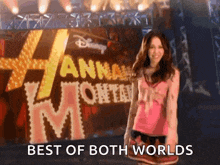Concentrate and subscribe: Apple | Spotify | Wherever You Listen
Sign up to obtain our weekly cultural-recommendations e-newsletter.
The primary individual is a story taste as impaired as storytelling itself—one who, at its highest, lets in us to revel in the arena via someone else’s visions. In this episode of Critics at Massive, Vinson Cunningham, Naomi Fry, and Alexandra Schwartz hint how the method has been old throughout mediums right through historical past. They speak about the tactics during which fantasy writers have performed with the unbalanced triangulation between creator, reader, and narrator, as in Vladimir Nabokov’s “Lolita” and Bret Easton Ellis’s “American Psycho,” a stock that adopts the standpoint of a serial killer, and whose newsletter provoked family outcry. RaMell Ross’s “Nickel Boys”—an adaptation of Colson Whitehead’s 2019 album—is a daring brandnew effort to deploy the primary individual onscreen. The movie issues to a bigger query in regards to the bounds of narrative, and of selfhood: Are we able to ever really occupy anyone else’s viewpoint? “The answer, in large part, is no,” Cunningham says. “But that impossibility is, for me, the actual promise: not the promise of a final mind meld but a confrontation, a negotiation with the fact that our perspectives really are our own.”
Learn, guard, and concentrate with the critics:
“Nickel Boys” (2024)
“The Nickel Boys,” via Colson Whitehead
“Lolita,” via Vladimir Nabokov
“Meet the Director Who Reinvented the Act of Seeing,” via Salamishah Tillet (The Fresh York Occasions)
“Great Books Don’t Make Great Films, but ‘Nickel Boys’ Is a Glorious Exception,” via Richard Brody (The Fresh Yorker)
“Lady in the Lake” (1947)
“Dark Passage” (1947)
“Enter the Void” (2010)
“The Blair Witch Project” (1999)
Doom (1993)
“The Berlin Stories,” via Christopher Isherwood
“American Psycho,” via Bret Easton Ellis
“The Adventures of Augie March,” via Saul Bellow
“Why Did I Stop Loving My Cat When I Had a Baby?” via Nameless (The Shorten)
“Harmony and Dissonance: Orphism in Paris, 1910-1930” on the Guggenheim Museum
Fresh episodes loose each Thursday. Practice Critics at Massive wherever you get your podcasts.
Source link


